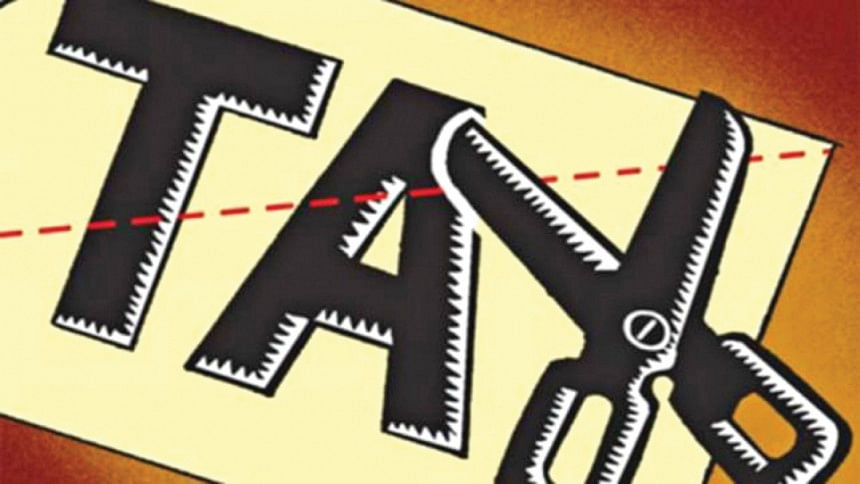On salary taxation

We have formed a new Company and just started recruiting employees. Now, we are determining their salary scales. As we know that in order to ascertain pay scale of an employee, tax issues need to be taken into account. So, it would be a great help if you provide us with the general ideas about the important components that we need to be cognisant of in order to determine the salary structure.
Response
Thank you for your query. Basically, salary comprehends every payment, due or received, by an employee from an employer or former employer on account of services rendered.
Firstly, let me take the opportunity to give an overview of the fact that in our country there is no generalised minimum wage requirement in order to pay the salaries to the employees rather the same is sector based. Accordingly, in order to determine salary scale first of all you are required to check whether there is any minimum wage requirement in your sector. However, if your sector does not have any minimum wage requirement as such, then you are free to decide the salaries of the employees as per the market analysis.
It is also to be noted that as per Bangladesh labour Act, 2006 there is no legal requirement to breakdown the salary into any component and even such legal requirement of breakdown is also not required by Income Tax Ordinance, 1984 (hereinafter referred to as "ITO"). But, as per tax laws and regulations of Bangladesh, tax rebate or tax benefits which are related with the salary depends on the components of the salary. Therefore, it is always suggested to determine the salary components based on the same.
Generally, salary often includes different allowances, bonuses, pension, commission, profit sharing and other benefits. Employees' salary incomes are subject to tax on salary and all other benefits. For example, as per Rule 33(2)A of Income Tax Rules, 1984 (hereinafter referred to as ITR) the total amount of basic salary in a year is fully taxable. In this regard the yearly increment should also be taken into consideration. Rule 33A of ITR deals with house rent allowance which states that when the house rent is received in cash, amount exceeding 50% of the basic salary or TK. 25,000.00 per month whichever is the higher shall be added with salary as taxable income. Rule 33I of ITR states about medical allowance where Tk. 120,000.00 per annum or 10% of basic salary, whichever is lower is exempted from tax. Rule 33C of ITR states that Tk. 30,000.00 per annum (cap per year) is exempted from tax where no conveyance facility is provided by the employer.
Additionally, please note, there are other allowances i.e., festival bonus, overtime allowance etc. which are fully taxable. However, apart from the aforesaid allowances there are other components mentioned in Rule 33 of ITR more elaborately where tax is exempted or fully taxable. Moreover, if you decide to establish provident fund scheme in the Company and if you get the scheme recognised from the National Board of Revenue (NBR) then both the employer and the employees shall obtain such tax benefits and the same rule applicable for gratuity as well.
Income tax rate varies and is accordingly charged to individuals based on different taxable income slabs. The slabs of total income and corresponding tax rates are changeable as per the nation budget passed in every fiscal year known as the Finance Act. In the national budget 2020-2021, the slabs of paying income tax have been revised to the benefit the tax-payer. These are: on first Tk. 3,00,000.00 of taxable income, the tax rate is nil (for women the threshold is Tk. 3,50,000.00; for disabled person Tk. 4,50,000.00 and for injured gazette freedom-fighters it is fixed at Tk. 4,75,000.00). After the respective threshold is crossed, on next Tk. 1,00,000.00 of taxable income, the tax rate is 5%, on next Tk. 3,00,000.00 the tax rate is 10%, on next Tk. 4,00,000.00 the tax rate is 15%, on next Tk. 5,00,000.00 the tax rate is 20% and on the remaining amount it is 25%. As a company, you are required to deduct applicable income tax from the taxable income from the salaries of the employees while disbursing the salary and deposit the same with the government exchequer. You should be aware of filing the returns under section 108 and 108A of the ITO in relation to the salary taxation.
Hope this general analysis shall help you in order to consider the pay structure and restive taxes of the employees. We would still like to suggest you to consult a tax lawyer or law firm before determining the salaries/taxes of employees of the Company.

 For all latest news, follow The Daily Star's Google News channel.
For all latest news, follow The Daily Star's Google News channel. 



Comments